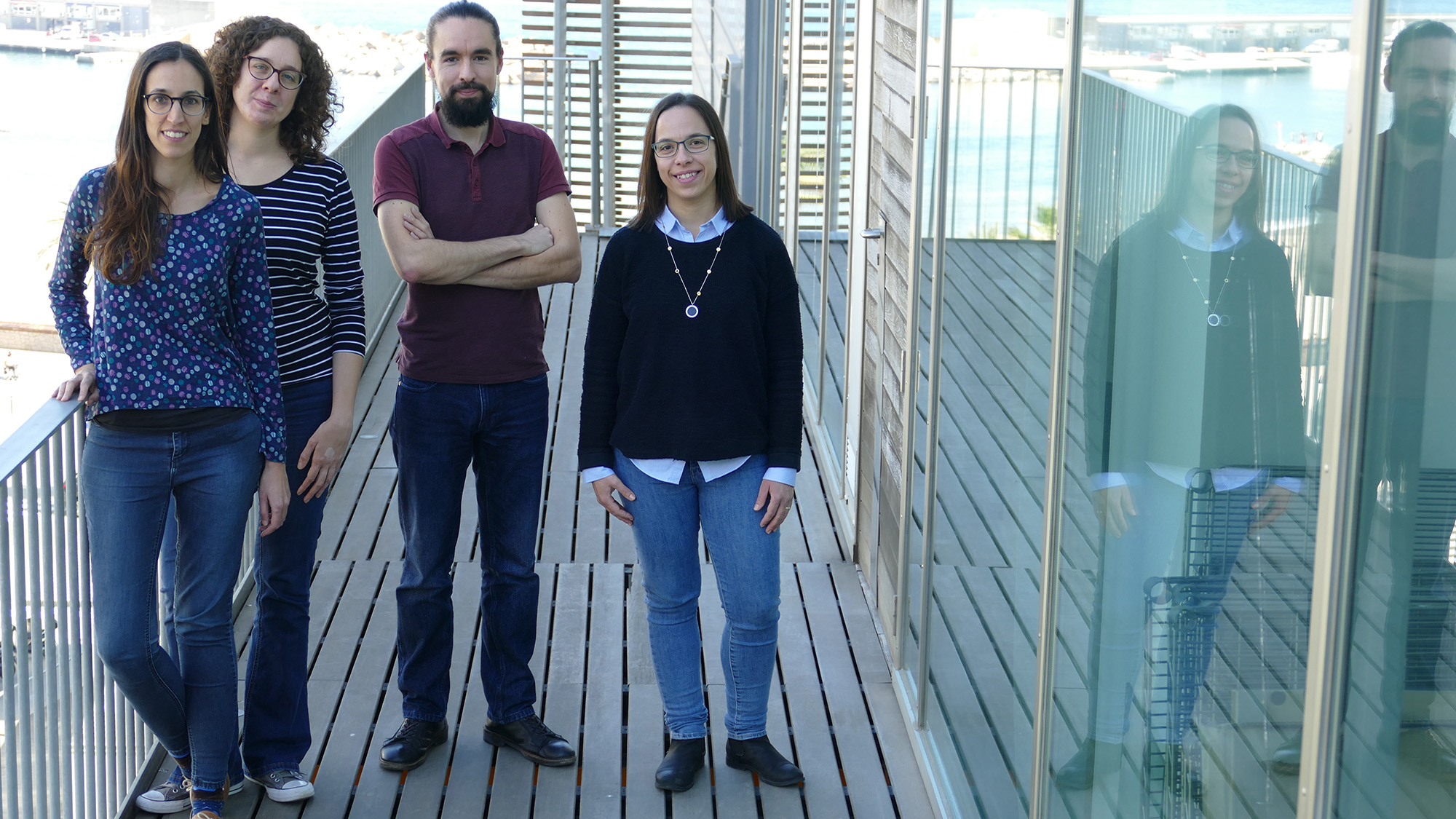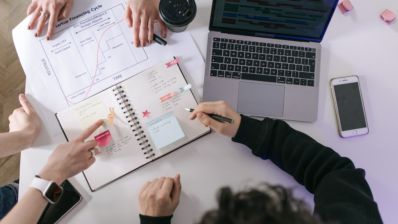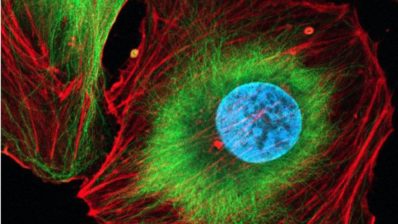Microomics, located on the 6th floor of the Barcelona Biomedical Research Park (PRBB), is a start-up dedicated to microbial analysis using next-generation sequencing technologies.
This spin-off of the Centre for Genomic Regulation (CRG) (the second within this PRBB centre) and ICREA, in which 5 people are currently working, is celebrating: it has started the year with one of the € 250,000 Neotec grants from the Ministry of Industry, and a Torres Quevedo contract from the Ministry of Science and Innovation.
We talked to Pedro González, Microomics CEO, about the evolution of the company since its begginings and what these new grants mean to them.
When and how was Microomics created?
Microomics was born in October 2017, as a CRG and ICREA start up. It was started by Toni Gabaldón and myself; at that time, I was doing a postdoc in his group at the CRG.
When I arrived at the lab in December 2016, I got fully involved in “Saca la lengua”, a citizen science project, very applied, where we analyzed the oral microbiome of 1500 teenagers. This project established the group’s expertise in metagenomics. It coincided with the possibility, just one month after my arrival, of participating in the Science to Business competition organized by the Technology Transfer Department of the CRG.
The €25,000 award, together with the accompaniament of the Technology Transfer Department, helped us a lot to start the entire process of setting up the company (brand protection, business plan, logo, brand, website launch…).
How was the jump from researcher to entrepreneur for you?
During my PhD I had already thought about creating a company – although my research was more basic than applied (I am a microbial ecologist!). I have always been interested in the translational side of science, that the effort and investment dedicated to my training reverts to the society. I became a more multidisciplinary professional, I started training in bioinformatics, and then in the different DNA omics (genomics, transcriptomics, metagenomics). These disciplines have gradually specialized in different niches, technologies have become cheaper… There was a market opportunity and it was a natural transition.
During my postdoc I also did a course at the IE Business School in Madrid, since the work and the mindset in research and entrepreneurship are different. As an entrepreneur you continue performing basic research but also doing more innovation, you are at the forefront of technology development, it is very stimulating. But on the other hand, the company must be sustainable, have a multidisciplinary team… It is a great challenge, but also a daily stimulus that I find very exciting, and that is the vision that I try to transmit to the rest of the team. In this sense, I am very happy with the professionals with whom I share the day to day, I learn a lot from them and they make me a better person. With each partner who joins the team, we win as a team and contribute to retain talent in our country.
“As an entrepreneur you continue perfoming basic research but you also do more innovation. You are at the forefront of technology development. It is very stimulating”
Pedro González
What services does Microomics offer?
Right now, we are a service company specialized in microbial analysis with sequencing technology, metagenomics being our star service. We have adapted the technology that we were already using in the laboratory to different niches, providing layers of value and differentiating expertise depending on the topic to which it is applied. The main one is biomedicine, and in this sense Microomics collaborates with hospitals and research groups characterizing the microbiome associated with diseases, such as cancer, childhood obesity, Chron disease… and evaluating the effect of treatments and interventions on it.
As well as in the health area, we have projects in other areas such as:
- Agriculture and environment, for instance, evaluating the effectiveness of biofertilizers to replace chemical fertilizers and contribute to sustainable agriculture.
- Livestock, for instance, evaluating the substitution of antibiotics in livestock by the use of probiotics (microencapsulated bacteria that are released when they arrive at the intestine) or prebiotics (they do not contain microorganisms but favor the growth of beneficial microorganisms and inhibit that of other pathogens).
- Food industry, for instance, studying food processing chains, identifying critical points in the chain and avoiding cross contamination.
Who are your clients?
We work both for the public sphere (we have consortiums with all the main hospitals in Barcelona and with 14 universities) and private, and in a variety of fields, since the microbiome is everywhere! The important thing for us is that we bring applied research to the street, to real problems, bringing science closer to the citizens. In this sense, we have a social commitment to diseases that affect children and the elderly, collaborating in studies as diverse as lung diseases, rare diseases, childhood obesity, etc.
Microomics is a company specialized in microbial analysis with sequencing technology. They have projects in the fields of health, agriculture and the environment, livestock, or food.
How has Microomics evolved since its creation?
Since its creation, Microomics and its team have constantly evolved. We reached sustainability on the fourth month, and since then we have been growing progressively. At the beginning we only offered bioinformatics service, but now we can do the entire value chain in an integral way – from getting the sample and analyzing it to doing the statistical analysis. That has been one of the main successes of the past year: the consolidation of the molecular part.
Tell us about the two grants you have recently received.
Last November we got a Torres Quevedo contract, an industrial postdoctoral grant from the Ministry of Science and Innovation, with which we can pay 70% of the salary of a person dedicated exclusively to R&D for 3 years. Nuria Escudero, who consolidated the molecular biology department, will boost the R&D area in that department, thanks to this grant.
And in December they gave us the Neotec help, from the Ministry of Industry, which aims to support the creation and consolidation of new technology-based companies in Spain. It is a € 250,000 grant (70% non-refundable), the largest aid available nationwide for companies younger than 4 years. It values that the project is innovative, with a strong expenditure on R&D, the financial strength of the company, scientific quality and commercial potential.
What will these aids mean for Microomics?
Right now we are a service company, but our goal is to become a dedicated biotech product generation platform based on NGS (Next Generation Sequencing) for microbial analysis. We are investing in technological developments, incorporating technologies and approaches such as Big Data. This is the qualitative leap that we hope to take in the coming years, and the Neotec and Torres Quevedo grants will be crucial to evolve our brand perception in this direction.







